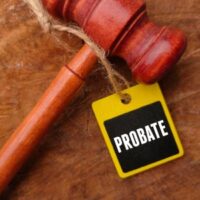Fighting Creditor Claims in Florida Probate

Have you had a loved one pass away in Florida recently? The passing of a loved one is always a difficult time. Adding to this is the mix of emotion and often overwhelming thoughts of trying to navigate the legal intricacies of the notorious Florida probate process. One significant wrinkle to work through that can arise in the midst of the Florida probate process is the task of managing creditor claims. First-timers navigating through the Florida probate process often ask if you can fight creditor claims that can crop up in the midst of probate. This article is meant to help readers better understand the probate process and understand avenues available to personal representatives and the estate’s beneficiaries.
What is Probate
First – it is important to understand precisely what “probate” even is. Probate refers to the legal process which administers a deceased individual’s estate, settling their debts, and distributing assets to beneficiaries. An important part of this process includes a timeframe that creditors or potential creditors have to make claims against the estate. These creditor claims could include collecting on debts and outstanding bills such as credit card debts, medical expenses, etc.
Creditor Claims
When a creditor submits a claim against an estate in probate, beneficiaries and estate representatives have the right to examine the legitimacy of the submitted creditor claim. It is crucial to appropriately examine these claims as they come in as there is a potential that they may be erroneous, or the claims could even be exaggerated. Challenging a creditor claim on a probate estate requires you to successfully execute a series of steps. Successfully navigating through the process requires a clear understanding of the probate process and applicable Florida law. Some of the items that are so pivotal to remember include requirements surrounding:
- Understanding the Claim Deadline: Creditors only have a very specific window in which they can submit their claims. It is important to know the timeline that applies in your own case so you understand when to be on the lookout for potential claims, and you can recognize when a claim is defunct due to not adhering to the required timeline. Timely response and action on the personal representative’s part is key in managing this aspect of Florida probate.
- Thorough Examination: You should shrewdly evaluate every creditor claim that you receive. Meticulous evaluation will determine whether the debt is valid, reveal any troubling inconsistencies, and ensure that proper documentation is both received and created moving forward.
- Filing Objections: There is a process to disputing creditor claims, and specific grounds on which someone might successfully bring a challenge to a dubious creditor claim. It is important to understand what grounds to assert to have your challenge heard, as well as what documentation might be required to support your challenge to the claim.
Contact Suncoast Civil Law
Challenging creditor claims requires a real understanding of Florida probate laws and regulations. Consulting with an experienced Florida probate attorney can be immensely beneficial in navigating the probate process effectively. Each case is unique – to gain real, comprehensive legal advice tailored to your specific circumstances, contact the esteemed Sarasota will & probate attorneys at Suncoast Civil Law.
Sources:
floridabar.org/the-florida-bar-journal/the-last-word-bankruptcy-courts-have-jurisdiction-to-determine-property-of-the-bankruptcy-estate-and-state-law-exemptions/
reviewjournal.com/crime/courts/florida-man-seeks-nearly-400k-from-tony-hsieh-estate-for-bus-sales-2513546/
